Charlotte E. Keyes (1914-1980)
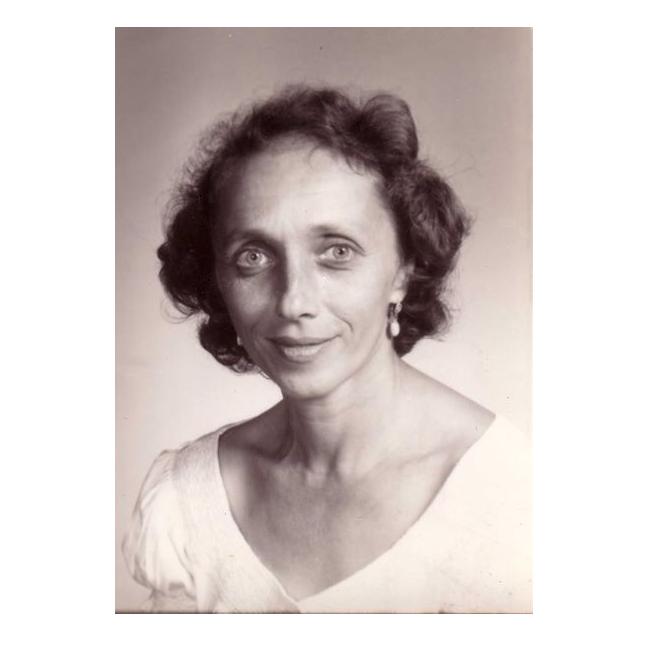
Our mother, Charlotte E. Keyes (nee Shachmann; nickname Chet) was a lifelong writer, poet, and peace activist. In honor of her memory, we are devoting a section in our respective websites to some of her verse and publications. Her 1966 McCall's article "Suppose They Gave a War and No One Came" helped popularize this phrase of Carl Sandburg's. She also published young-adult biographies of Ralph Waldo Emerson, and Herman Melville.
Gene and Ralph Keyes http://www.genekeyes.com http://www.ralphkeyes.com
(with encouragement from our other two siblings, Stephen and Nicolette)
Some love poemsPoetry
Some published poems
Gene's favorite of hers, an antiwar poem originally published in the pacifist Fellowship magazine, July 1952, p. 14:
In the MuseumCan it be in the chromosomes?
I've never shared with him the tomes
I've read or thoughts on war or death.
Yet gazing long with quiet breath
At the soldier dolls in museum case,
My five year old lifts tortured face—
"They all have guns!" "Of course they do."
"But why?" "They have to shoot." "At who?"
"Oh . . . other men." I stammer here.
"And will they die?" "Some will" I steer
Him to another nook, of ships
And sailors gathering way. His lips
Still brood upon the ones behind—
"I don't like soldiers."Now his mind
Takes in the new display. "Are those
Men shooting people too?" He knows,
And without waiting for my "Yes,"
Has judged them all. He's pitiless.
"I don't like sailors." "Dear . . . " what will
I tell him? "They don't like to kill.
They're made to by the government."
The case is little different.
"Then governments I don't like either."
Our thoughts are brooding, child and mother.
From New Athenaeum, Winter 1957:
TransmutationWithout you. I was still water. When you
Came to me, your every gesture threw
A stone in my quiet depths. And in
My pulse the wind and the rain shuddered.
You gave me a sun to burn in my hands,
And the mirrored sky poured over me.
Take care, as you seek to best me into eddies.
Beware the flesh you drink to slake your
thirst:
The flesh that licks about you now itself
unslaked.
Burst into flame, as water never was.
From Poetry Digest April-May 1958:
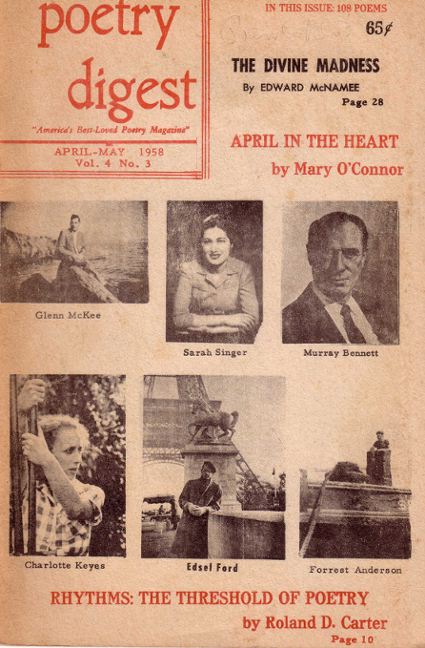
Polarity for a Young SonHe's breathless, learning to skip.
Tripping over his feet,
With the left never waiting its turn
And the right off beat.
Till in weariness they falter,
Losing vigilance;
And the right and left are swinging
In the pulse of a dance.
If later he plunges in flight,
Wings wild with a ravelling beat.
Will he rest, as they tire and sag
In ebbing retreat,
Till the currents in which he whirled
Bear him up in rebirth,
And the dance of his wings is one
With the pulse of the earth?
From Poetry Digest, January 1959:
The Poet and the EconomistWho writes a poem, he or I?
My words, I like to think, can fly,
While his, pedetrian, must trudge.
He has to drudge
With chart and graph, with slippery fact.
I watch him, see him backed
Into a corner in his quest.
He stops to rest.
I taunt perhaps: "You work too slow.
Take wing. Give in to fancy. Oh,
Stop grubbing in the solid deed.
A higher sphere --" He does not heed.
He's found his parallel, his rhyme,
And back to work, he's lost to time
And place. He sees a world
Obscure to me, furled
From the grossness of my economic
Sense, a world so large yet so atomic
-- Perhaps in verse I can depict the sight:
We dip our pens into ourselves and write.
Written in high school; published in the Chester Times, Dec. 16 1931 Lament You built a throne for me of all your love, |
Written while studying with Theodore Roethke, ca. 1951: Now dusk has come, and for me you are glowing |
For her 38th anniversary with Scott, Chet composed this poem in 1977: The years they are |
Light verse
|
And see article below . . .
|
Some magazine articles
| "I Breast-Fed my Four" (Baby Post,
February 1960)
Chet had originally entitled this article "Four at the Breast". . 
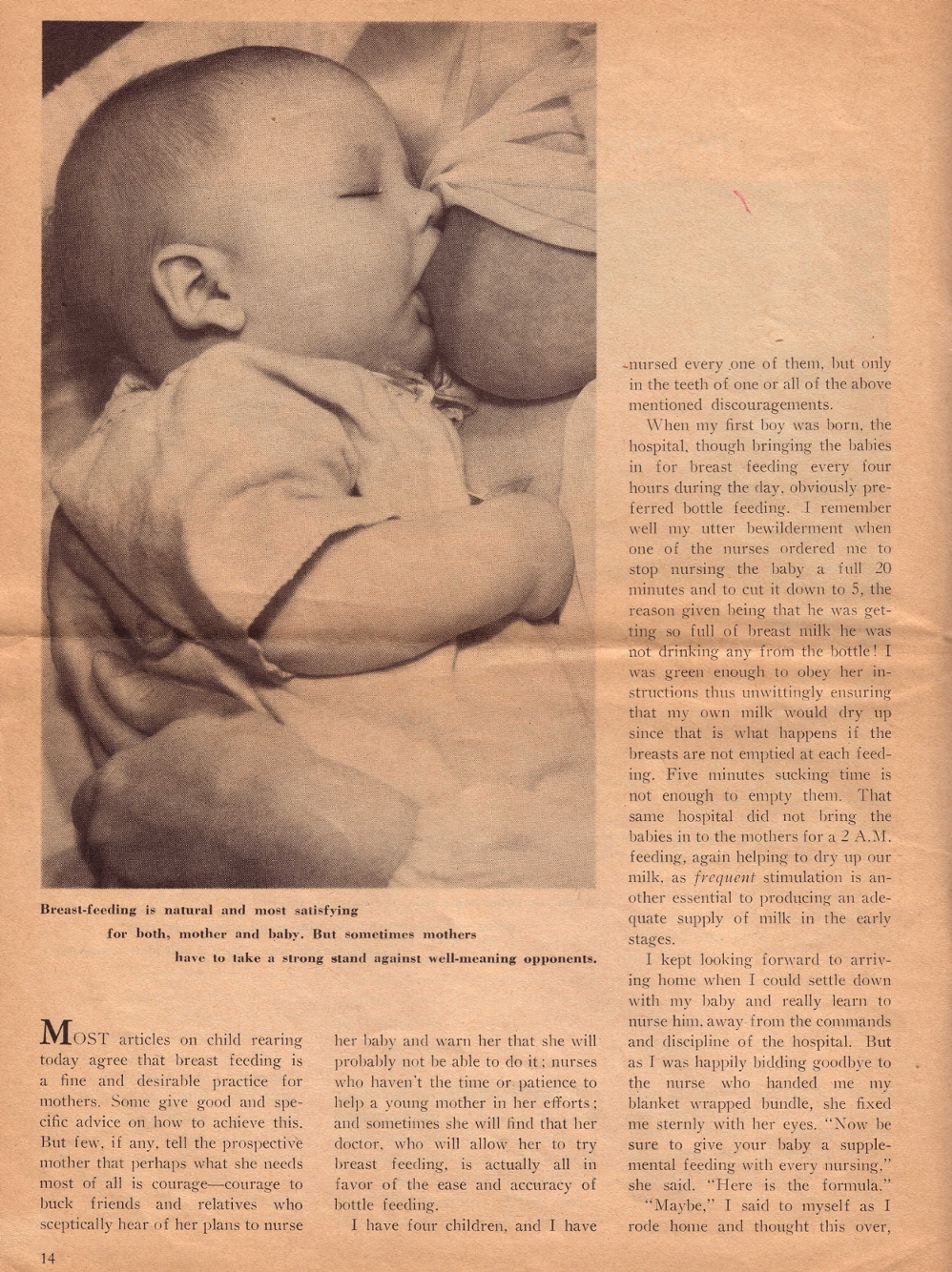
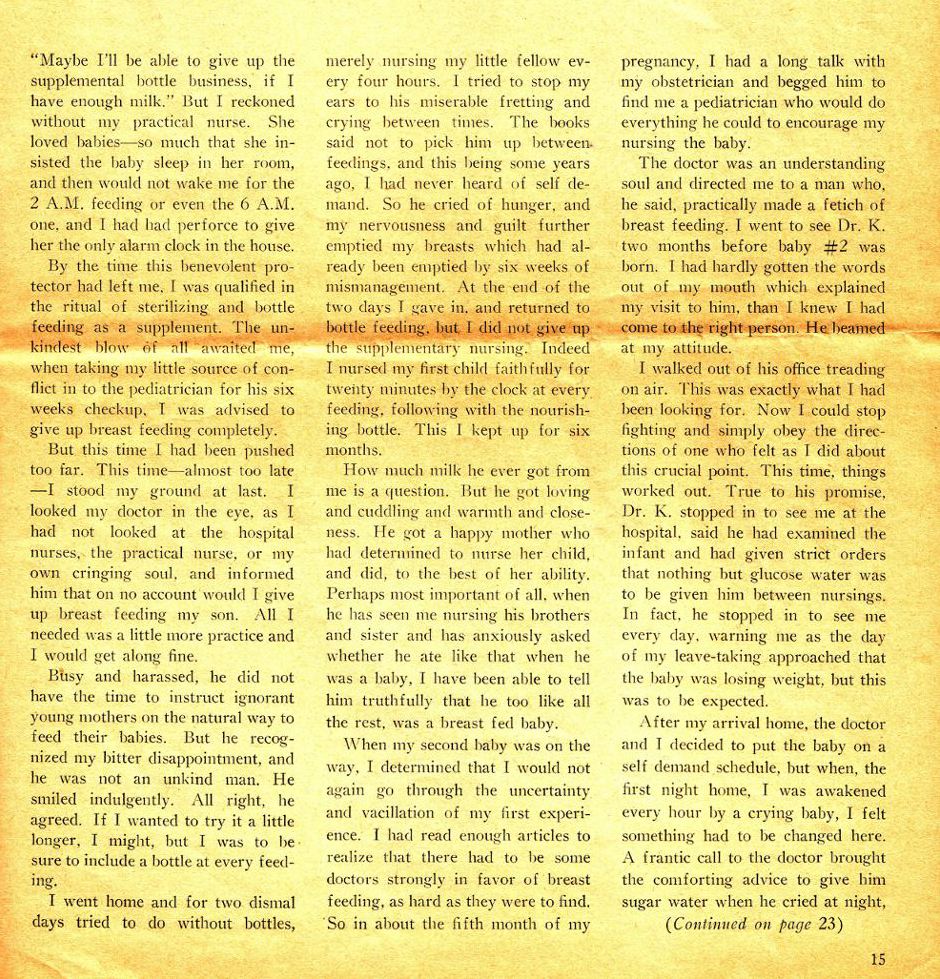

|
“Suppose They Gave a War and No
One Came.” (McCall's, October 1966)
Charlotte Keyes was the one who put this phrase into circulation in 1966, borrowing a line from Carl Sandburg 30 years earlier. It appeared on posters, bumper stickers, buttons, in a 1968 Monkees song (YouTube here; lyrics here), and even a 1970 movie title. (And now yields 14,000 results in Google, using the first five words.) As Ralph Keyes explains in his book The Quote Verifier (N.Y: St. Martin’s Griffin, 2006) p. 239: “Suppose they gave a war and no one came?” Carl Sandburg’s epic poem The People, Yes (1936) included a line that, in a different form, became one of America’s best-known antiwar slogans. Sandburg’s poem portrayed a little girl who, while watching her first military parade, observes, “Sometime they’ll give a war and nobody will come.” This thought didn’t attract much attention when it first appeared, nor for many years thereafter. In 1961 Scientific American editor James R. Newman wrote a letter to the Washington Post in which he misremembered Sandburg’s line as “Suppose they gave a war and no one came?” Writer Charlotte E. Keyes saw Newman’s letter and filed it away for future reference. In 1966 Keyes wrote an article for McCall’s magazine about her war protester son Gene, using Newman’s misrecollection of Sandburg’s line as its title. This title soon showed up on a bumper sticker that was held up by news anchor David Brinkley on his NBC newscast. After that the saying caught fire, with little awareness of its origins. It has been misattributed to Arlo Guthrie, Allen Ginsberg, Bertolt Brecht, and others. Some think the saying originated with Sandburg’s colleague Thornton Wilder, but no evidence has been offered to confirm this.Because he is the subject of this article, Gene was reluctant to have it posted on his own website, but agreed with his siblings that one could not omit such a signal contribution of their mother to the antiwar feelings of the Vietnam era. p.1 of 4: 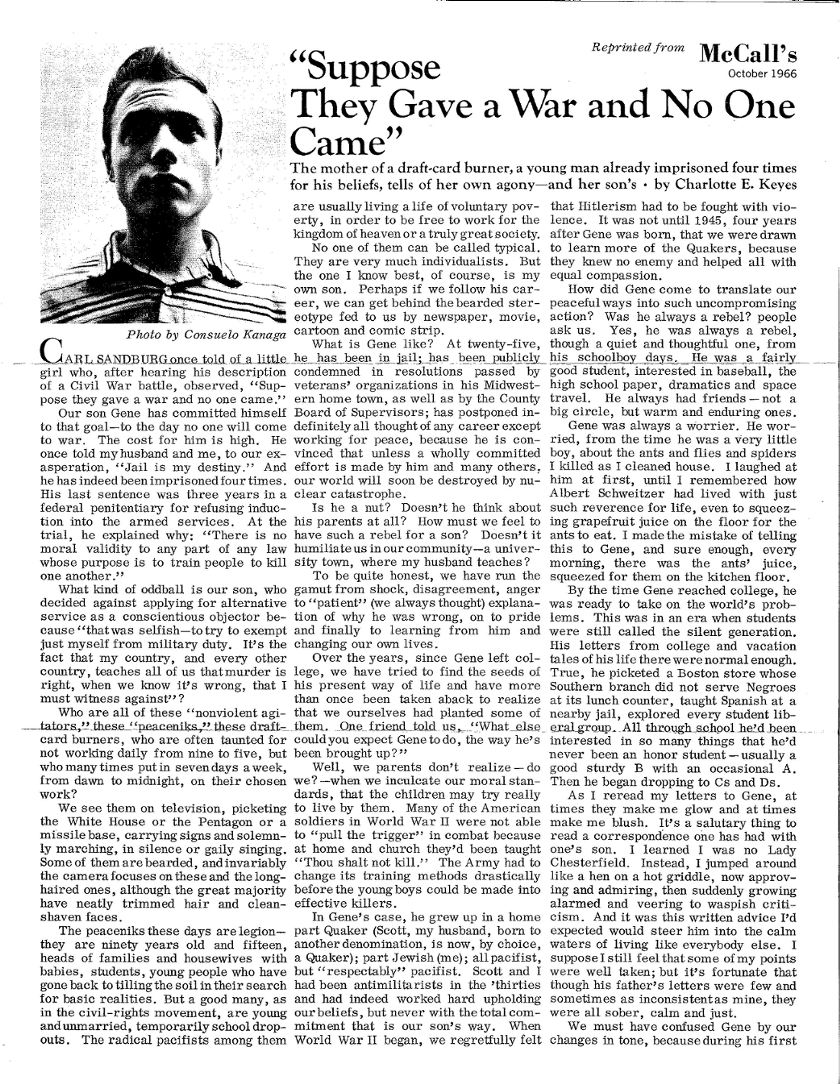
p.2 of 4: 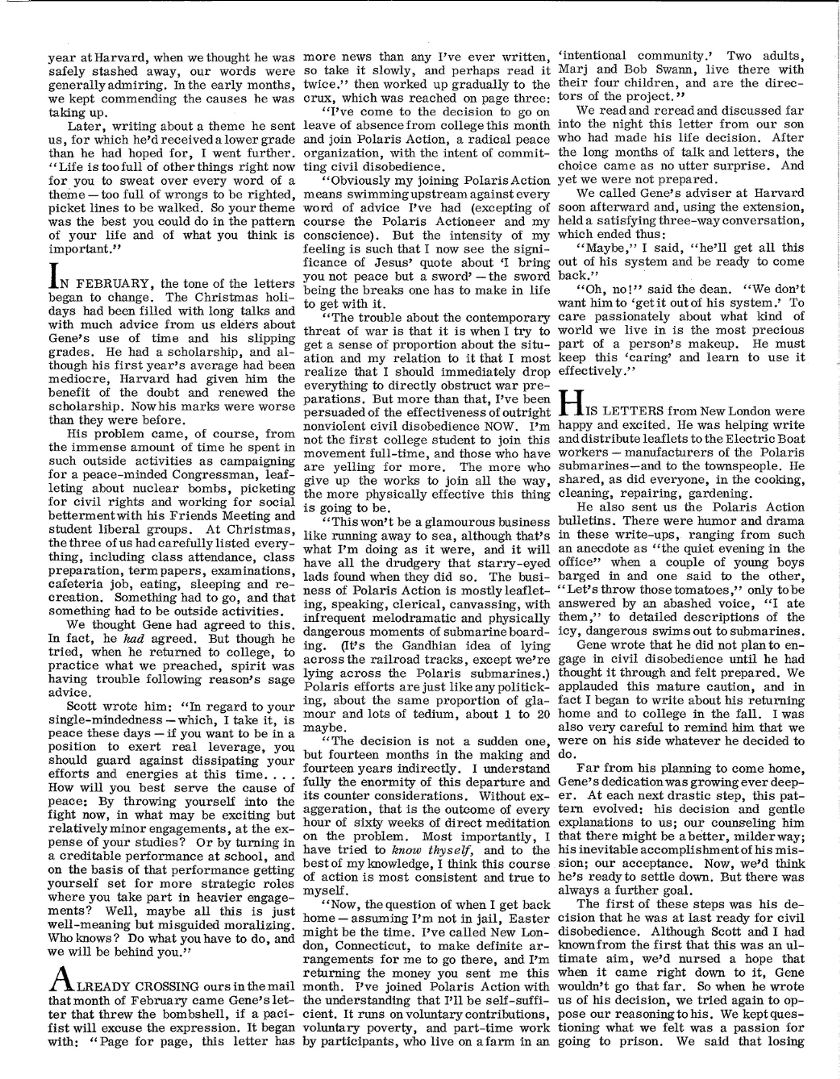
p.3 of 4: 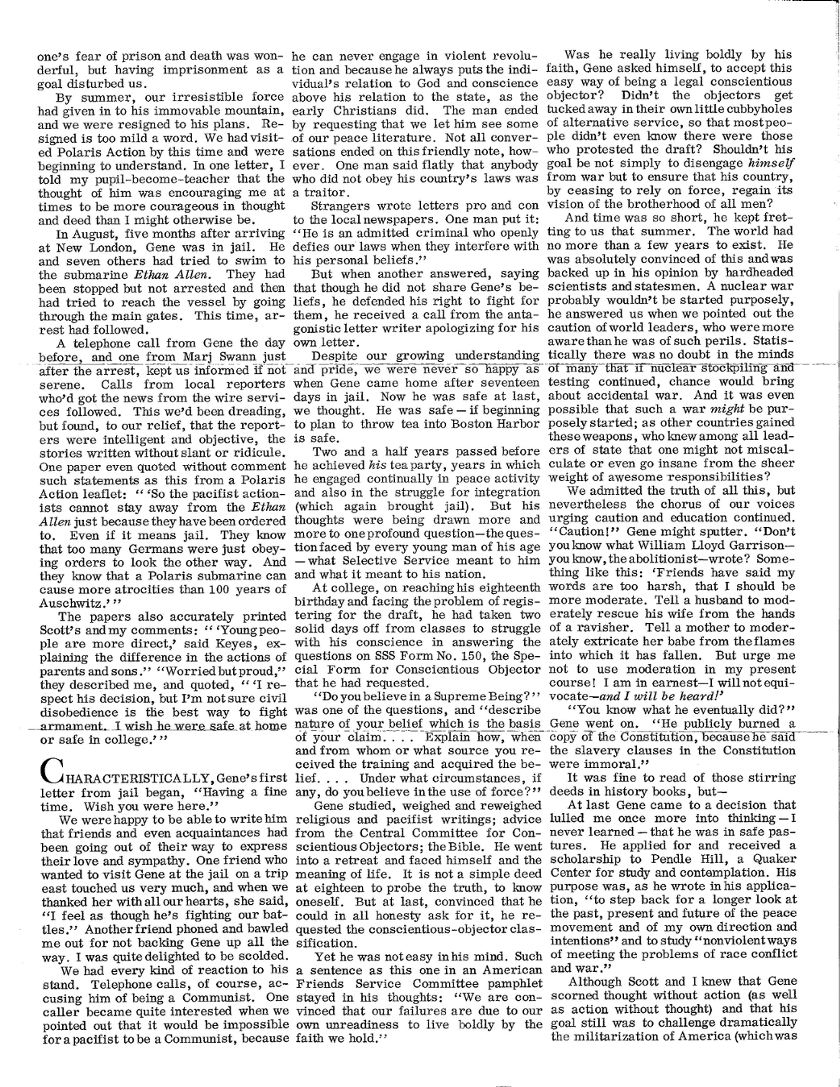
p.4 of 4: 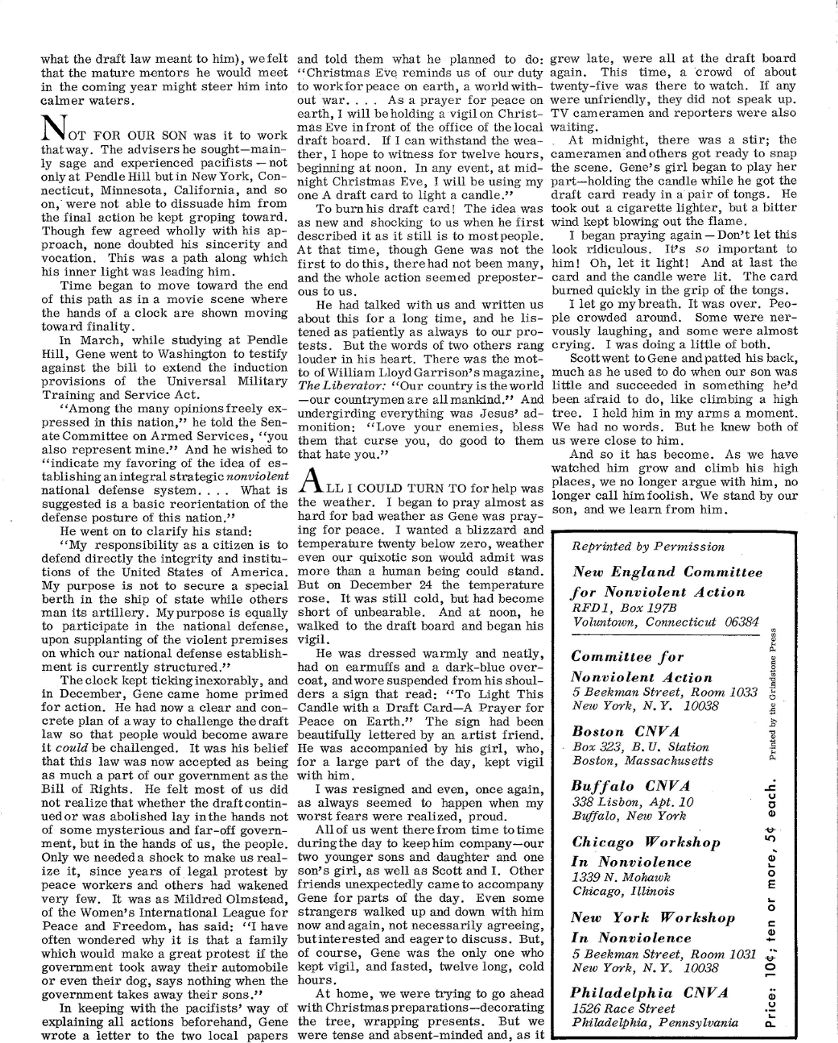
[Above addresses obsolete.—GK]
|
Books by Charlotte E. Keyes
These are her two biographies for teen-agers:
The Experimenter: a biography of Ralph Waldo Emerson (New Haven: College and University Press, 1962) 156 p. [Amazon link for used copies] 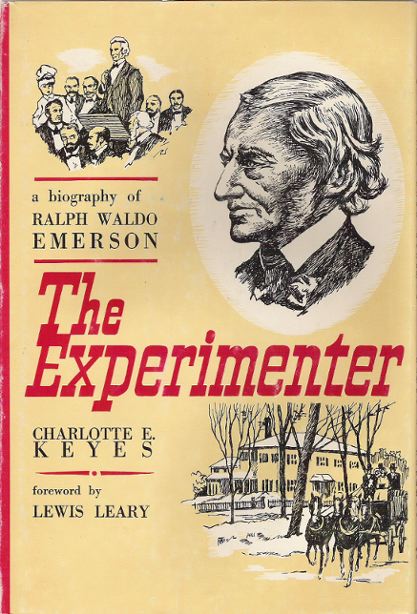
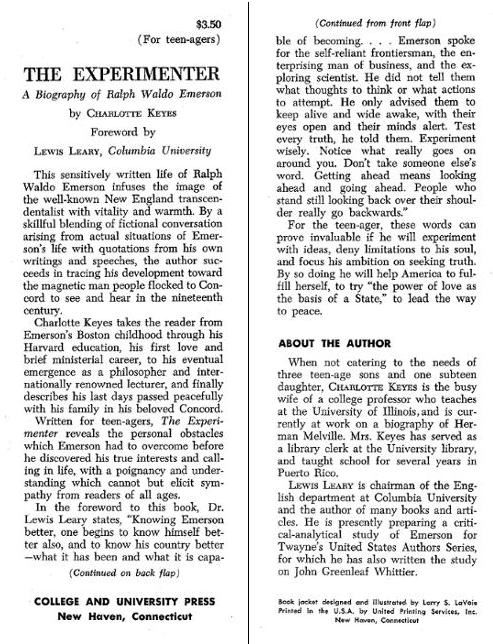
|
High on the Mainmast: a biography of Herman Melville (New Haven: College and University Press, 1966) 158 p. [Amazon link for used copies] 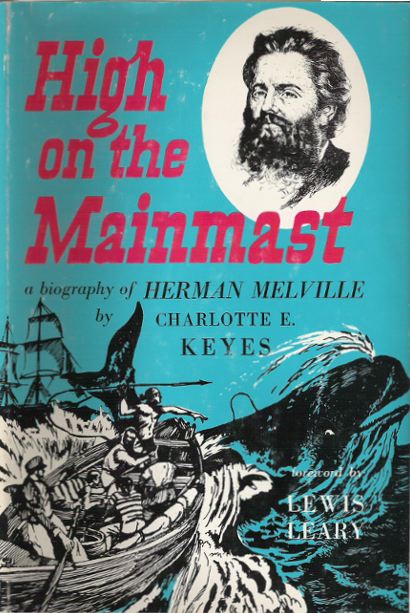
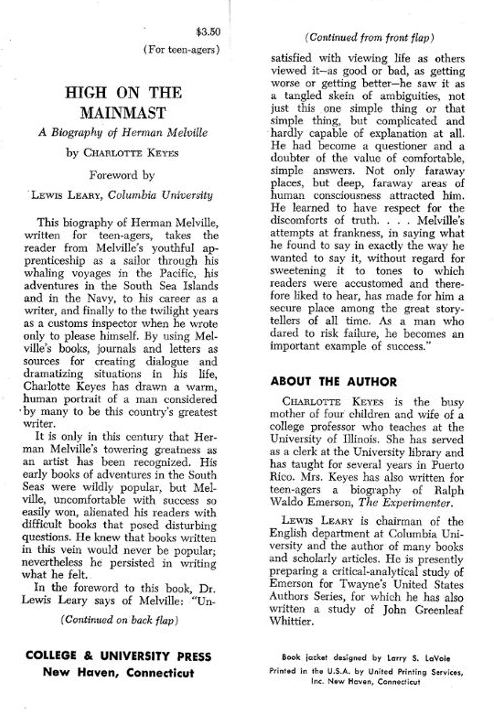
|
Archive from RK; scans by Muriel Keyes & Mary Jo
Graça; other scanning & page design by GK.
Go back to Gene Keyes website
Go back to Ralph Keyes website